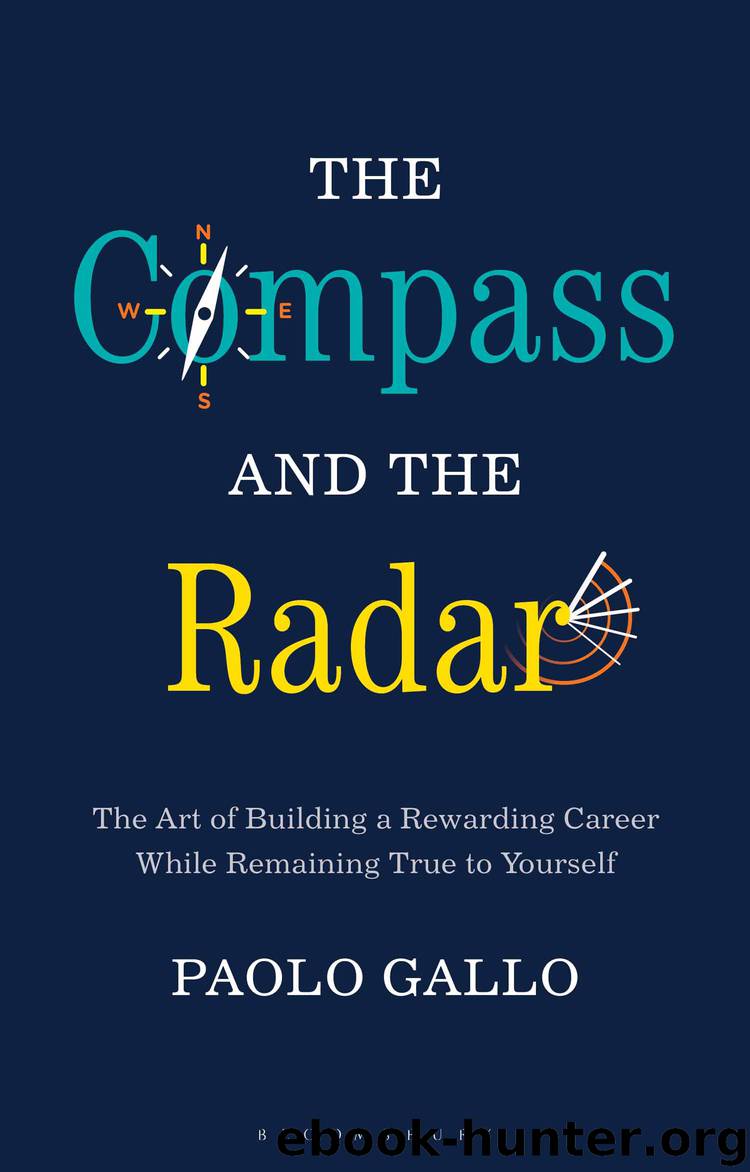The Compass and the Radar by Paolo Gallo

Author:Paolo Gallo
Language: eng
Format: epub
ISBN: 9781472958815
Publisher: Bloomsbury Publishing
Published: 2018-09-05T16:00:00+00:00
The wisemen and the true leaders: Owls, Elephants and Lions
I got interested in power, or rather, abuse of power by reading George Orwell’s classics and masterpieces when I was a teenager (1984 and Animal Farm). Power is not a dirty word: it can – and should – be well managed. Owls are people with high political intelligence as well as behaviour oriented towards the success of the organization they are part of. They encourage the exchange of information to improve relationships and results and they emphasize learning, not criticism. They have no problem managing differing opinions, unlike the logic of the Foxes which is ‘with me or against me’. They seek solutions in which everyone can benefit and try to protect people’s dignity. They help others and make themselves available. Their most important characteristic is that they’re driven by strong moral values and they don’t betray people, unless they’ve been betrayed themselves. They never shoot first because they believe in dialogue; they shy away from deceit, ploys, tricks, lies. They defend colleagues and employees publicly and privately; they’re very attentive; they don’t speak much, but when they do speak everyone listens.
Owls become Elephants when they gain experience, gravitas.33 Elephants have a prodigious memory and in organizations they’re respected people not so much because of their position but because of their wisdom and authority. You can identify the Elephants in the organizations thanks to their moral weight: ‘Have you consulted Mr. …?’, ‘Have you heard what … thinks?’, ‘First we must talk about it with …’ are all sentences that refer to these characters and they can be useful to identify. The Elephants, also known as opinion leaders, are people with a degree of judgement that can influence the way of thinking in organizations. When we identify an Elephant, the first rule is to approach them with the proper respect. Peacocks seek adulation, whereas Elephants instil respect and sobriety. The second rule brings us back to our capacity to listen and ask questions, to ask for advice. The best strategy is to convince the Elephants to guide us, as Virgil did with Dante,34 the moral and spiritual guide in the journey of The Divine Comedy.
The Lions are the only true leaders of organizations. Here comes the paradox of the leader who, on the one hand, must represent the values of the organization and, on the other hand, must succeed in changing the organization itself. When I think of this paradox, I am reminded of Pope Francis: on the one hand, the head of an organization, the Catholic Church, with 2,000 years of history, on the other hand leading extraordinary change in relation to corruption and an openness to issues considered taboo by the Catholic Church until recently. A true leader, who perfectly personifies the paradox.
What makes Lions different to Owls and Elephants? The courage of their convictions, whatever the cost, is the most important quality in a leader. I present you with two Lionesses and two Lions, each with a phrase
Download
This site does not store any files on its server. We only index and link to content provided by other sites. Please contact the content providers to delete copyright contents if any and email us, we'll remove relevant links or contents immediately.
| Business School Guides | GMAT |
| Guides | Interviewing |
| Job Hunting | Job Markets & Advice |
| Resumes | Vocational Guidance |
| Volunteer Work |
The Motivation Myth by Jeff Haden(5191)
Audition by Ryu Murakami(4911)
Adulting by Kelly Williams Brown(4552)
The Confidence Code by Katty Kay(4237)
A Mind For Numbers: How to Excel at Math and Science (Even If You Flunked Algebra) by Barbara Oakley(3288)
Waiting in the Wings by Melissa Brayden(3205)
Self-Esteem by Matthew McKay & Patrick Fanning(3125)
Fooled by Randomness: The Hidden Role of Chance in Life and in the Markets by Nassim Nicholas Taleb(3091)
The ONE Thing by Gary Keller(3051)
Nice Girls Don't Get the Corner Office by Lois P. Frankel(3034)
The Dictionary of Body Language by Joe Navarro(2983)
How to be More Interesting by Edward De Bono(2779)
Designing Your Life by Bill Burnett(2725)
Getting Things Done by David Allen(2684)
The Plant Paradox by Dr. Steven R. Gundry M.D(2596)
Police Exams Prep 2018-2019 by Kaplan Test Prep(2527)
What Color Is Your Parachute? 2015 by Richard N. Bolles(2295)
Dangerous Personalities by Joe Navarro(2273)
When to Jump by Mike Lewis(2234)
